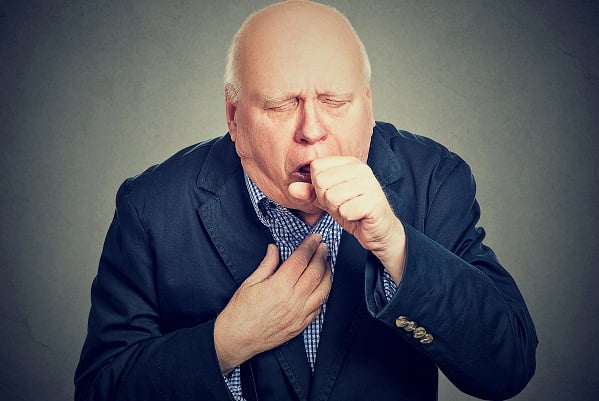Albuterol for Croup Cough: How Does Albuterol Work?
- Updated on: Jun 28, 2024
- 4 min Read
- Published on Oct 3, 2019

What is Albuterol? How does Albuterol work?
Albuterol contains salbutamol as an active ingredient which belongs to a class of drugs known as bronchodilators. It used for the treatment of asthma and chronic obstructive pulmonary disease (COPD). More specifically, it is used to treat shortness of breath and wheezing caused by breathing problems as in case of asthma.
It works by relaxing the smooth muscle surrounding the airways, thereby opening passages to the lungs to facilitate easier breathing. It is a very quick-relief medication and works in five to eight minutes. Its relieving effect lasts from three to six hours.
What are the side effects of Albuterol?
Some of the mild and common Albuterol side effects are:
- Headache
- Nausea
- Vomiting
- Fast or irregular heart rate
- Chest pain
- Dizziness
- Runny nose
- Shakiness
- Nervousness
- Sore throat
Usually, these side effects are mild in severity and resolve within a few days, but if they are persistent and more severe, you should seek your doctor’s help.
There are some serious side effects of Albuterol as well. You should seek immediate medical help if you feel any of the following:
- Bronchospasm marked by trouble in breathing and wheezing
- Serious allergic reaction such as
- Skin rash
- Hives
- Trouble in swallowing
- Worsening of your breathing problems
- Decrease in blood pressure and loss of consciousness (shock)
- Swallowing of your face, eyelids, lips, tongue or throat
- Heart problems such as high blood pressure and faster heart rate
- Severe skin reactions characterized by intense itching, burning and red lesions all over skin
What are the various ways of taking Albuterol?
Albuterol comes in two dosage forms:
- Liquid – as a solution to inhale by mouth using a special machine known as nebulizer (machine that turns medication into a mist that can be inhaled).
- Aerosol or powder to inhale by mouth using an inhaler
Albuterol nebulizer treatment
Liquid form of Albuterol is used in the nebulizer treatment. The nebulizer processes the liquid and turns it into a very fine mist, which is then inhaled. This processing of liquid into mist allows the medication to reach the most problematic areas of asthma-like the breathing passageways, very quickly.
Frequency of using Albuterol nebulizers is three to four times per day, according to the American Society of Health-System Pharmacists. It should always be remembered that Albuterol is a medication that only treats the symptoms of asthma, but it is not a cure. You should take is as directed by your prescribing physician and should not stop the treatment unless directed to do so by your physician, even if the symptoms clear up.
For the preparation of nebulizer, the top of the Albuterol vial is twisted off, and all of the liquid in the vial is squeezed into the nebulizer’s reservoir which is then connected to the face mask or mouthpiece which in turn is connected to the compressor. These days, many variations in the design of the nebulizer are available.
How to use an Albuterol inhaler?
Albuterol inhalation (albuterol inhaler) is used to treat or prevent bronchospasm in various respiratory conditions or to prevent exercise-induced bronchospasm. It should be used for adults and children who are at least 4 years old.
You should read patient Information literature provided by your doctor or pharmacist before you start using the albuterol inhaler. The illustrated directions should be exactly followed for the proper cleaning of the mouthpiece and for the proper use of this medication. In case of any doubt and inquiry, you should consult your doctor or pharmacist.
Always remember to shake the canister well before using and always test the functioning of sprays. Ejaculation of a fine mist confirms that the inhaler is working properly. You should avoid spraying the medication in your eyes.
For using it, inhale the medication by mouth as directed by your doctor, usually every 4 to 6 hours as needed. Dose can be adjusted to your need and response to the treatment. You should avoid increasing its dose without prior approval from your doctor. Excess use of this medication can result in serious and fatal side effects.
Can Albuterol be used for cough?
Albuterol can be prescribed for the treatment dry and hacking cough (especially night time cough), wheezing and if you and your child is having difficulty in breathing. But it main use is relaxing the muscles in case of asthma and chronic obstructive pulmonary disease (COPD).
Read about: Croup Cough: Causes, Symptoms, Complications, Diagnosis, Treatment
Why is Albuterol no longer used for Bronchiolitis?
Bronchiolitis, a prevalent lower respiratory tract infection in children under two years, is mainly attributed to the respiratory syncytial virus (RSV). This condition leads to inflammation of the bronchioles, manifesting as wheezing and shortness of breath. For high-risk children, preventive measures include the administration of Palivizumab monthly during the RSV season or a singular dose of Beyfortus (nirsevimab) either prior to or during the RSV season. Historically, albuterol, a bronchodilator, was the treatment of choice for severe cases. However, updated 2014 American Academy of Pediatrics (AAP) guidelines now advise against its use, citing a 2013 study that found albuterol neither improved patient outcomes nor reduced hospital stay lengths. Additionally, the AAP no longer endorses the use of nebulized hypertonic saline, systemic corticosteroids, antibiotics, and chest physiotherapy for bronchiolitis.
Can Albuterol be used for croup cough?
No, albuterol for cough is not recommended. Albuterol is not helpful in the treatment of croup cough. It doesn’t help in relieving the voice box swelling caused by croup, and hence don’t help with the stridor either. Albuterol is a prescription medicine that is most effective for the treatment of the wheezing associated with asthma or reactive airway disease.
Can Albuterol make a cough worse?
The Albuterol only helps in relaxing your air way so you can cough easier and it doesn’t help in getting rid of the cough. In some cases, it has been observed that it may cause paradoxical bronchospasm, which means your breathing or wheezing will get worse to an extent of life-threatening condition.
If you or your child has difficulty in breathing, shortness of breath, coughing, or wheezing after using this medicine, you should immediately contact your doctor.












